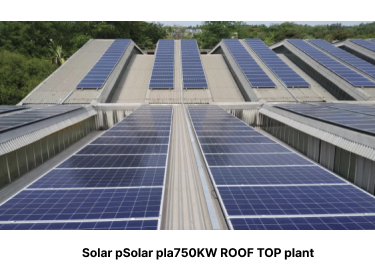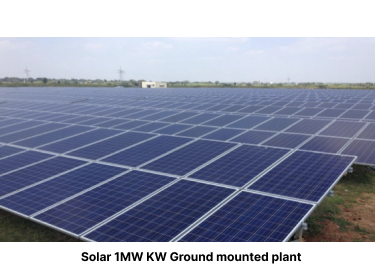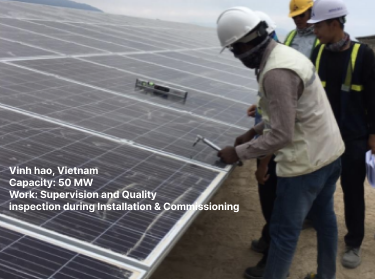Products
Solar Systems
solar power generation through a solar system harnesses the energy of the sun and converts it into usable electricity using photovoltaic cells. It offers numerous benefits, including environmental sustainability, energy independence, cost savings, and job creation. With its clean and renewable nature, solar power plays a vital role in transitioning towards a more sustainable and resilient energy future.

Using solar power in the industrial segment offers several advantages:
Cost Savings: By generating electricity from solar power, industrial facilities can significantly reduce their energy costs. Once the initial investment in solar panels and equipment is made, the operational costs are relatively low. Solar power systems have a long lifespan, and the energy generated is essentially free, making it a cost-effective solution in the long run.
Stable and Predictable Energy Costs: Industrial operations often require a significant amount of energy, and fluctuations in energy prices can impact profitability. By adopting solar power, industrial facilities can stabilize their energy costs, as sunlight is a free and abundant resource. This allows for better financial planning and reduces the vulnerability to price volatility in the energy market
Environmental Sustainability: Solar power is a clean and renewable energy source that produces zero greenhouse gas emissions during operation. By utilizing solar energy, industrial facilities can reduce their carbon footprint and contribute to mitigating climate change. This aligns with sustainability goals, enhances corporate social responsibility, and may attract environmentally conscious customers and stakeholders.
Energy Independence and Reliability: Industrial operations often rely on a stable and uninterrupted power supply. Solar power systems can provide a degree of energy independence by generating electricity on-site. This reduces dependence on the electrical grid and minimizes the risk of power outages or disruptions. In remote or off-grid industrial locations, solar power can be particularly beneficial, eliminating the need for costly infrastructure extensions.

Lorem ipsum dolor sit amet, consectetur adipiscing elit. Proin bibendum ultricies nunc, eu interdum enim convallis pretium.

Government Incentives and Tax Benefits: Many governments offer incentives, grants, and tax credits to promote the adoption of renewable energy sources, including solar power. Industrial facilities can take advantage of these programs to offset the upfront costs of installing solar systems, making the investment more financially attractive.
Long Lifespan and Low Maintenance: Solar panels typically have a lifespan of 25 years or more, requiring minimal maintenance during that time. This longevity ensures a stable and consistent power supply for industrial operations. Routine cleaning and inspections are typically sufficient to keep the system functioning optimally.
Scalability and Flexibility: Solar power systems can be customized to meet the specific energy needs of industrial facilities. They can be scaled up or down, depending on the energy demand and available space. Additionally, solar power can be integrated with other energy sources or storage technologies to provide a reliable and flexible energy solution.
Overall, incorporating solar power in the industrial segment offers tangible benefits, including cost savings, environmental sustainability, energy independence, and a positive brand image. As solar technology continues to advance and costs decrease, it becomes an increasingly attractive and viable option for industrial operations seeking long-term energy solutions.




















